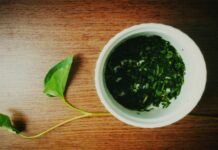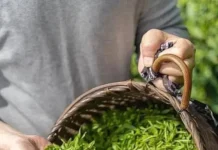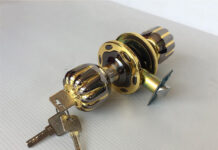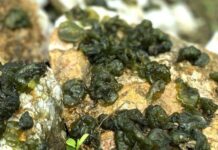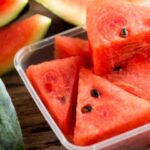When was the last time you checked your fridge? If you haven’t been scrutinizing your produce drawer, especially if you’re stocking up on herbs and greens for home cooking, it’s time to start doing so regularly.
Finding a lot of spoiled food in your fridge is not uncommon. In a study conducted by the National Environment Agency (NEA), 24% of 443 households surveyed said they often throw away spoiled food, and the top two reasons for doing so were over-purchasing and leftover food.
Moreover, preventable food waste amounts to each household throwing away a 2.5kg bag of rice every week, according to the same study. Food waste is not a new issue. NEA noted that food waste generated in Singapore has increased by about 40% over the last decade. It peaked in 2016, when food waste generated was equivalent to the weight of more than 3,500 MRT trains.
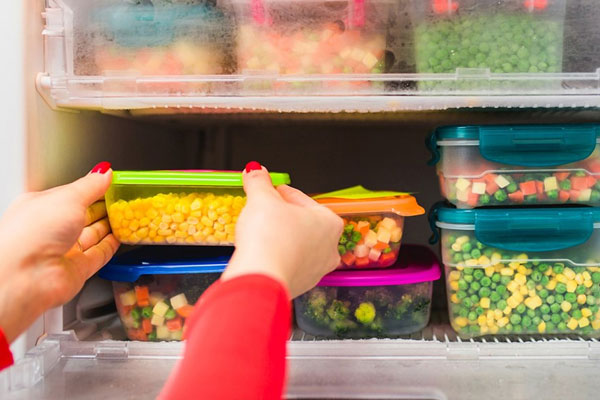
When it comes to perishable food, don’t buy in bulk. It may seem like you’re saving money by buying more, but if you end up throwing away wilted lettuce, yellowing broccoli, mushy tomatoes, and moldy mushrooms because you can’t use them in time, you’re wasting money. A good idea is to plan your meals and buy only what you need.
Some recipes even have ingredient measurements so you can adjust them to your family’s needs. And you won’t feel bad about throwing away leftovers. Implement some simple food storage tips to prevent this from happening.
First, ensure your fridge is “cold enough”
Do you know what temperature your fridge should be at? According to NEA, the ideal temperature range is 0 to 4 degrees Celsius for the fridge and -12 degrees Celsius and below for the freezer. Temperatures of 5 degrees Celsius and above will increase bacterial activity and enzyme respiration, reducing the shelf life of food.
Catherine Seah, a lecturer at the School of Chemical and Life Sciences at Nanyang Polytechnic, advises that if you’re extremely cautious, you should set your fridge temperature even lower.
A simple way to check your fridge temperature without expensive equipment is to place a regular thermometer in a glass of water and put it in the fridge. For freezer temperature, do the same with a thermometer inside alcohol or cooking oil as water will freeze.
Vacuum sealing food can improve preservation by 50%
Vacuum sealing can extend the shelf life of fruits and vegetables by up to 50%. For foods like fish, it can add anywhere from 6 to 18 days. “Vacuum sealing removes oxygen, thereby reducing oxidation reactions in the food during storage. The vacuum environment also inhibits the growth of anaerobic microorganisms, such as certain bacteria and molds that require oxygen to grow, thus improving food preservation.”
Keep beverages like milk in the center of the fridge
Most people place their milk on the fridge door for convenience. But this spot may cause it to spoil faster as it’s not as cold as the center of the fridge. Instead, tuck your milk in the coldest part of the fridge. This is also an ideal spot to store your cheese, as long as the temperature is below 4 degrees Celsius.
How to store fruits and vegetables
Some fruits and vegetables release a ripening gas called ethylene. While some produce is more sensitive to ethylene than others. For example, apples are known to produce ethylene, while bananas are sensitive to it. Keeping them together, even outside the fridge, will cause the bananas to turn brown and mushy faster.
Lettuce and kale can wilt and get slimy if stored in plastic bags. To absorb the excess moisture that the leaves release during cooling, transfer them to a storage container along with a few paper towels on top and bottom before closing the lid.
Fresh mushrooms like brown, button, or portobello are best stored after removing them from their plastic wrap and containers. Place them in a paper bag before putting them in the fridge for optimal freshness.
Unless you’re growing basil, parsley, or mint on your balcony, you’ll occasionally have to buy herbs. And you’ll likely end up with a bunch of unused, rotting herbs in your fridge. To keep them fresh for up to two weeks, trim their ends and place them in a glass of water, just like flowers, and cover them with a plastic bag.
Strawberries, cherries, and blueberries tend to mold in the fridge. To prevent this, soak them in a solution of one part vinegar and three parts water after you buy them. Rinse them well, dry them, and then store them in the fridge.
According to PNVN
Why Do Green Bananas Ripen So Quickly After Being Prayed Over?
The mystery of the rapidly ripening bananas is an intriguing one. Why do green bananas, once offered as a sacred fruit on the altar, turn a golden yellow within a matter of days? This phenomenon has puzzled many, but the answer lies in the unique biology of the banana plant and the delicate balance of nature.
Why Do Bananas Turn Black So Quickly? – Unpeeling the Truth
The golden yellow banana is a curious fruit. Its beauty is short-lived as it quickly turns from a vibrant yellow to an unappetizing black if left a little too long or not consumed quickly enough after being peeled. This transformation is an intriguing phenomenon, and one that has left many scratching their heads.


